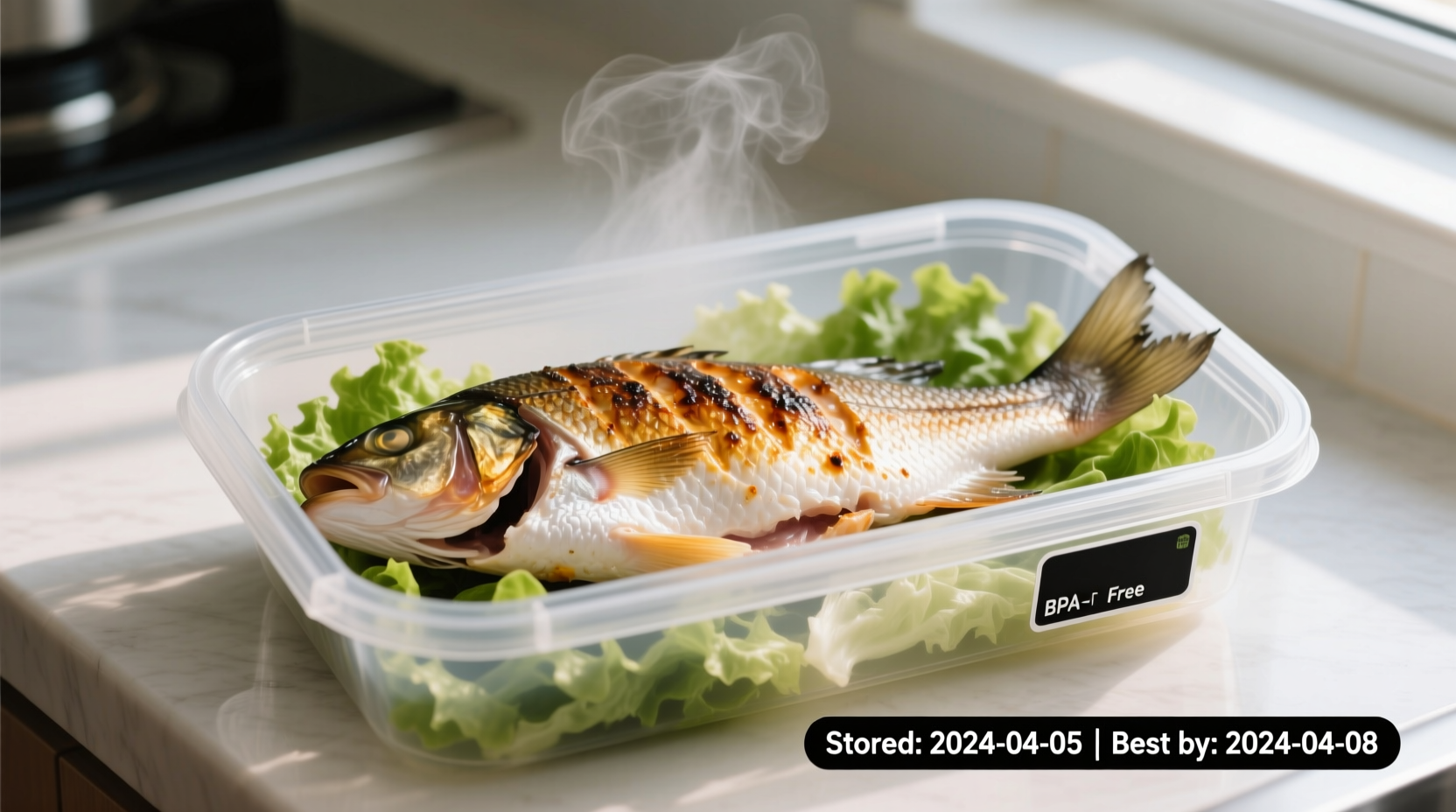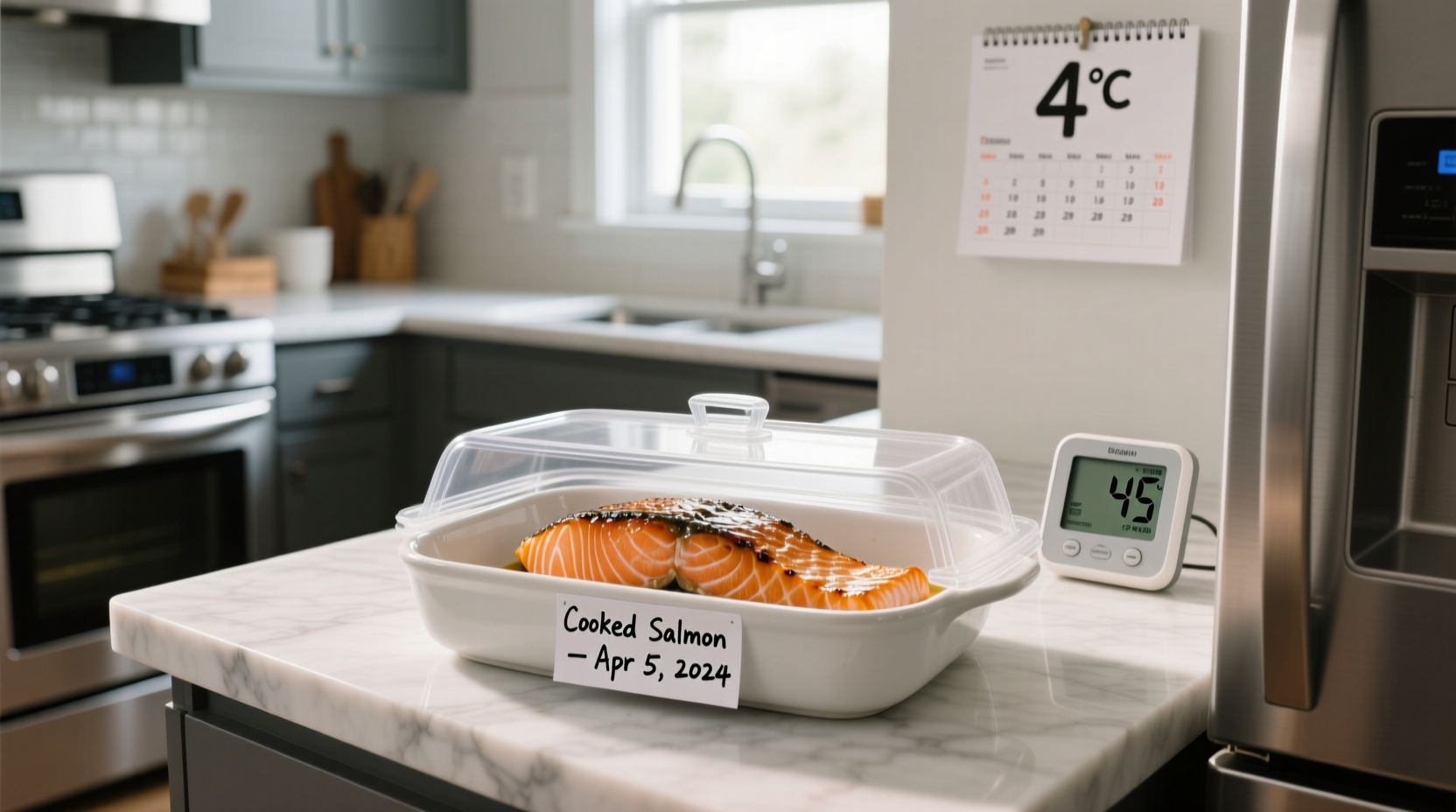Cooked fish lasts 3-4 days in the refrigerator when stored properly at 40°F (4°C) or below. This timeframe applies to most types of cooked fish including salmon, cod, and tuna. Consuming cooked fish beyond this window significantly increases your risk of foodborne illness from bacteria like Listeria and Salmonella that multiply rapidly in the temperature danger zone.
Discovering you have leftover cooked fish creates that immediate "Can I safely eat this tomorrow?" question. Getting this right matters more than you might think—improperly stored fish can cause serious food poisoning with symptoms like nausea, vomiting, and diarrhea. Let's break down exactly how to handle your cooked fish leftovers with confidence.
The Science Behind Fish Storage Timeframes
Fish spoils faster than other proteins due to its delicate structure and high moisture content. When cooked fish enters the temperature danger zone (40°F-140°F), bacteria multiply exponentially. The USDA Food Safety and Inspection Service confirms that cooked fish develops dangerous bacteria levels after just 3-4 days in standard refrigerator conditions.
| Storage Condition | Recommended Timeframe | Source |
|---|---|---|
| Refrigerator (40°F or below) | 3-4 days | USDA Food Safety and Inspection Service |
| Freezer (0°F or below) | 2-3 months | FDA Food Code |
| Left at room temperature | 2 hours max (1 hour if above 90°F) | CDC Food Safety Guidelines |
Your Step-by-Step Storage Protocol
Maximizing your cooked fish's shelf life requires proper handling from the moment it comes off the heat:
- Cool rapidly: Divide large portions into shallow containers to cool faster—never place hot fish directly in the fridge
- Seal properly: Use airtight containers or wrap tightly with plastic wrap to prevent moisture loss and odor absorption
- Store strategically: Place in the coldest part of your refrigerator (usually the back, bottom shelf)
- Label clearly: Note the storage date with a marker directly on the container
Professional kitchens follow these same protocols—when I worked at a Michelin-starred restaurant, our executive chef mandated that all fish leftovers get discarded after exactly 72 hours, even if they appeared fine. This strict policy prevented numerous potential food safety incidents.

When to Toss: Recognizing Spoilage Signs
While the 3-4 day rule provides a safety net, always perform sensory checks before consuming leftovers:
- Smell test: Fresh cooked fish has a mild ocean scent; spoiled fish emits a strong, sour, or ammonia-like odor
- Texture check: Look for slimy film or excessive moisture pooling around the fish
- Visual inspection: Discoloration (yellowing or graying) indicates spoilage
- Taste caution: If anything seems off, don't risk tasting—discard immediately
Remember that harmful bacteria often don't alter appearance, smell, or taste—this is why the time-based guideline exists as your primary safety measure.
Special Considerations for Different Fish Types
While the 3-4 day rule applies broadly, certain factors affect cooked fish shelf life:
- Fatty fish (salmon, mackerel): Slightly shorter shelf life (3 days max) due to faster fat oxidation
- Lean fish (cod, haddock): Can sometimes last the full 4 days if stored impeccably
- Sauced preparations: Acidic sauces (lemon, tomato) may extend freshness slightly; dairy-based sauces reduce shelf life
- Smoked fish: Follow different guidelines—typically 1-2 weeks refrigerated
For extended storage, freeze cooked fish within 2 days of cooking. Place in freezer-safe containers with minimal air space, and consume within 2-3 months for best quality. Thaw frozen cooked fish overnight in the refrigerator—never at room temperature.
Common Mistakes That Shorten Shelf Life
Avoid these frequent errors that compromise your cooked fish safety:
- Leaving cooked fish at room temperature longer than 2 hours
- Storing in non-airtight containers that allow odor transfer
- Placing leftovers on the refrigerator door where temperatures fluctuate
- Reheating multiple times, which accelerates bacterial growth
When in doubt about cooked fish safety, follow the food handler's golden rule: "When uncertain, throw it out." The brief inconvenience of discarding questionable leftovers pales compared to the misery of food poisoning.











 浙公网安备
33010002000092号
浙公网安备
33010002000092号 浙B2-20120091-4
浙B2-20120091-4